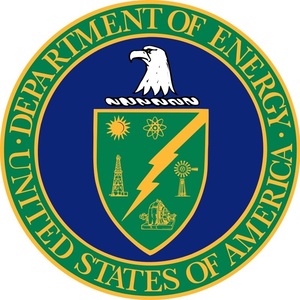DOE announces $178 million to advance bioenergy technology

September 14, 2022
BY U.S. Department of Energy
The U.S. Department of Energy on Sept. 13 announced $178 million for bioenergy research to advance sustainable technology breakthroughs that can improve public health, help address climate change, improve food and agricultural production, and create more resilient supply chains. This funding will support cutting-edge biotechnology R&D of bioenergy crops, industrial microorganisms, and microbiomes. Alternative clean energy sources like bioenergy are playing a key role in reaching President Biden’s goal of a net-zero carbon economy by 2050.
“Producing cheaper energy from organic materials — like plants, food, and waste — keeps money in the pockets of energy consumers and prevents carbon pollution from reaching the atmosphere,” said U.S. Secretary of Energy Jennifer M. Granholm. “These projects will continue to advance the boundaries of biotechnology and support the emergence of a thriving U.S. bioeconomy that creates good-paying jobs and helps us meet our climate goals.”
By discovering, understanding, and harnessing nature’s sophisticated capabilities we can address a broad range of topics related to DOE’s mission in sustainable bioenergy development, including the production of sustainably grown crops for bioenergy and bioproducts to tackle climate change. The biotechnology funding supports:
•Research on renewable bioenergy and biomaterials production to develop new bioproduction platforms, including research on systems and synthetic biology, computational modeling on bioenergy crops, industrial microbes and algae, and microbial communities. (Funding amount: $99.7 million)
Advertisement
Advertisement
•Quantum-enabled bioimaging and sensing for bioenergy to develop state-of-the-art instruments and biological sensors that will advance research on plant and microbial systems relevant to bioenergy and environmental research. (Funding amount: $18 million)
•Research to characterize gene function in bioenergy crop plants to facilitate development of new bioenergy feedstocks with traits tailored for bioenergy and bioproduct development. (Funding amount: $27.4 million)
•Understanding the role of microbiomes in the biogeochemical cycling of elements in terrestrial soils and wetlands genomics-based and systems biology research. (Funding amount: $33 million)
Advertisement
Advertisement
The projects were selected by competitive peer review under four DOE Funding Opportunity Announcements sponsored by the Biological and Environmental Research program within the Department’s Office of Science: Biosystems Design to Enable Safe Production of Next-Generation Biofuels, Bioproducts, and Biomaterials; Quantum-Enabled Bioimaging and Sensing Approaches for Bioenergy; Systems Biology Enabled Microbiome Research to Facilitate Predictions of Interactions and Behavior in the Environment; and Genomics-Enabled Plant Biology for Determination of Gene Function.
Total funding is $178 million for projects lasting up to five years in duration, with $47 million in Fiscal Year 2022 dollars and outyear funding contingent on congressional appropriations. The list of projects and more information can be found here.
Related Stories
The USDA maintained its outlook for 2025-’26 soybean oil use in biofuel production in its latest World Agricultural Supply and Demand Estimates report, released Aug. 12. The forecast for soybean oil prices was also unchanged.
U.S. soybean production for 2025 is forecast at 4.29 billion bushels, down 2% when compared to last year, according to the USDA National Agricultural Statistics Service’s latest monthly Crop Production report, released Aug. 12.
Marathon Petroleum Corp. on Aug. 5 released second quarter financial results, reporting improved EBITDA for its renewable diesel segment. The company primarily attributed the improvement to increased utilization and higher margins.
Chevron Corp. on Aug. 1 confirmed the company started production at the Geismar renewable diesel plant in Louisiana during the second quarter after completing work to expand plant capacity from 7,000 to 22,000 barrels per day.
California’s new specified source feedstock attestation requirement: A critical new compliance step for renewable fuel producers
As of July 2025, California’s SCFS requires renewable fuel producers using specified source feedstocks to secure attestation letters reaching back to the point of origin. This marks a significant shift in compliance expectations.
Upcoming Events










